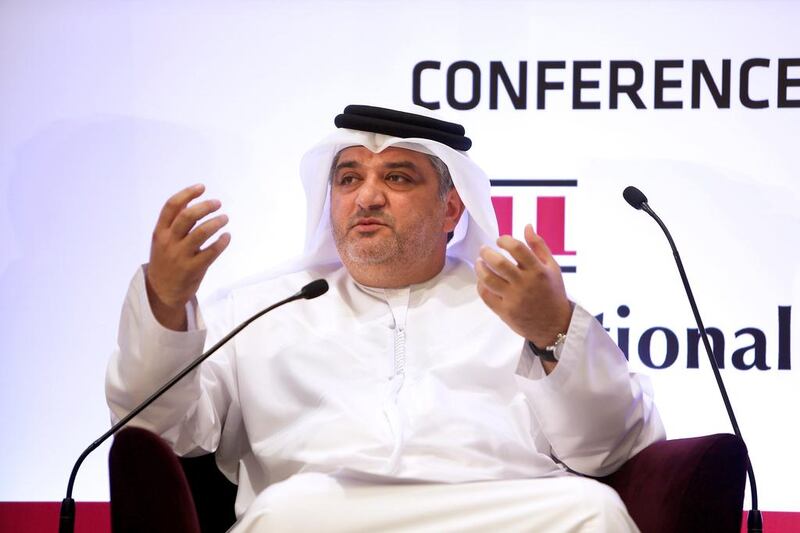Abu Dhabi Securities Exchange (ADX) is betting that the UAE's upgrade to emerging market status and an improvement in the economy will pull in more global institutional investors and prompt a stream of initial public offerings next year, according to Rashed Al Baloushi, the ADX chief executive.
The ADX’s benchmark stock measure has gained 52 per cent this year, the third-best performer after indexes in Dubai and Venezuela. It is heading towards its best year since 2005, when it gained 75 per cent, according to Bloomberg data.
The UAE's economic recovery gained momentum this year, giving a boost to listed companies, Mr Al Baloushi said. Economists expect the economy to grow 4 per cent this year and by at least the same amount next year after Dubai won the right to host World Expo 2020.
It follows stagnation in the country’s stock markets and economy after Dubai’s debt repayment crisis in 2009 and housing price collapse.
Global investors are taking notice and so far this year there have been 510 new institutional investors who have dipped their toes into the ADX, Mr Al Baloushi said.
Still, the number of overall global institutional investors is small when compared with the majority of the 932,000 investors in the Abu Dhabi market who are individual or retail investors.
Mr Al Baloushi said he was impressed with the number of new institutional entrants to the market this year, but he was counting on more to increase the volume of shares trading hands and lessen volatility.
A number of IPOs next year should also help the exchange gain more traction among global asset managers, he said.
“One of the problems that we have is that most investors are retail,” he said. “The speculators, they generate the money. Having the institutional investors is what creates stability. They come to the market based on due diligence, based on analysing the market, looking at PE ratios and all financial analysis.”
Apart from the upgrade to the MSCI emerging market index in May next year, which may bring in Dh1bn of additional investments, institutional investors are also being attracted by the improvement in company profits amid a turnaround in the UAE’s economic fortunes, Mr Al Baloushi said.
And those companies, which on average had a 5 per cent increase in net income in the third quarter this year compared with the same period last year, will continue to benefit as the government spends more money on infrastructure projects, he said.
To help to garner more interest in Abu Dhabi’s companies among international investors, the ADX will go on a roadshow next year that will take it to the US and Europe, Mr Al Baloushi said.
The ADX is dominated by big government banks and utilities such as National Bank of Abu Dhabi and Etisalat, the national fixed-line and mobile phone operator. The biggest cash generators in the oil industry remain tightly held by the Government.
Rules on ownership that prevent foreigners from owning more than 49 per cent of companies, and in some cases – such as Etisalat – limit ownership to Emiratis, has deterred or frustrated global investors.
A proposed new companies law will make it easier for businesses to flourish but will still have a requirement that 51 per cent of a company’s ownership remains in the hands of locals.
Mr Al Baloushi said that while he had not heard when the new proposed companies law would take effect, it should give a boost to the stock market.
mkassem@thenational.ae





